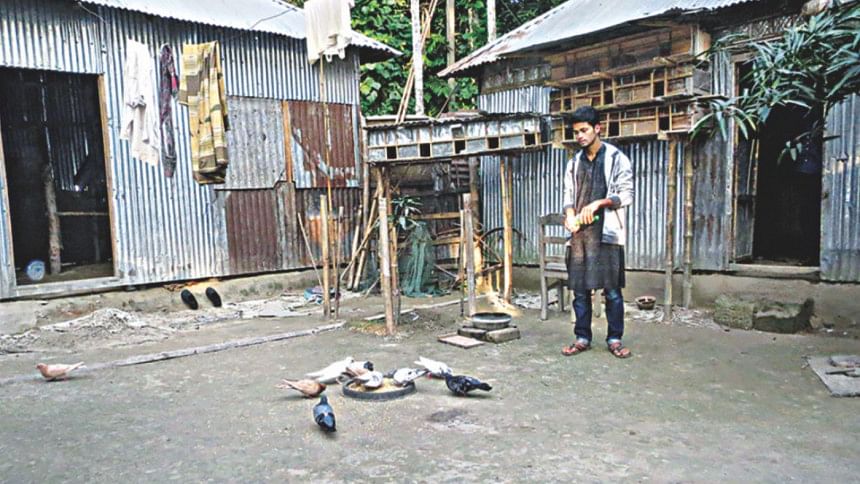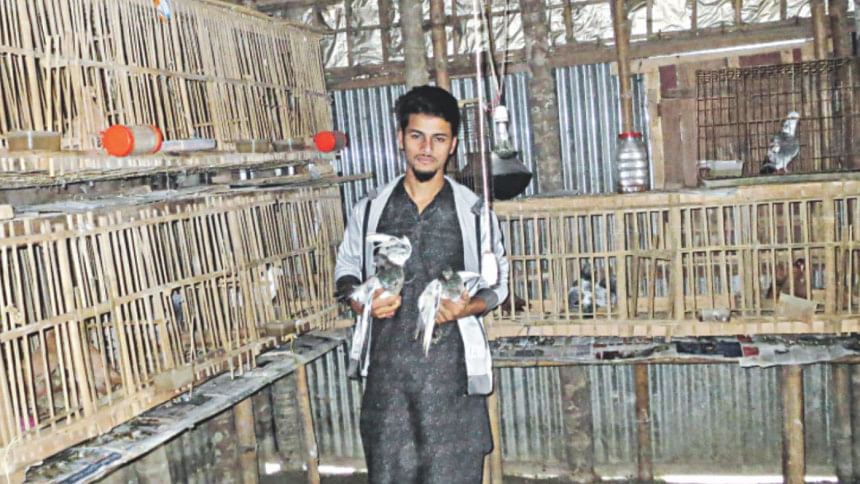Managing education cost by pigeon farming

When the guardian is supposed to provide his education expenses, 17-year-old Minhajul Islam has taken the responsibility upon him and arranges the expenditure through pigeon farming.
Besides arranging his own study cost, the teenage boy also financially supports his younger brother whenever possible.
Minhajul, son of Mostafa Kamal of Sanwashi village in Sadar upazila and an HSC first-year student at Kanthalbari Degree College, first took up the hobby of pigeon rearing from his maternal grandfather when he was a student of Class VII in 2014.
In the first year, Minhajul took a pair of pigeons of a local variety from his maternal grandfather and bought another pair from the nearby Kanthalbari Bazar later on.

A couple of months later, he sold some of his local variety pigeons at Kanthalbari Bazar and bought a pair of Shiraji variety with the money but did not have much knowledge about it.
Later, he gathered some primary knowledge from one of his neighbours while he was in Class IX and started farming of Shiraji variety along with the local variety at his house.
After five months, when the Shiraji variety started laying eggs for the first time, he started getting profit.
At present, Minhajul is rearing about 30 pairs of different varieties of pigeon, including Shiraji, Ghia Chunni, Lal Chunni, Shoa Chandan, Red Bombai, Mukkhi, Kagzi, Gerebaj as well as the local variety.
“I feed them different foods items like wheat, maize, china, pulse, mustard, paddy, rice and grits, a mixer brick dust, egg skin, snail dust and oyster, twice a day,” Minhajul said, adding that he earns around Tk 7,000 every month by selling the pigeons while his expenditure is only Tk 50 per day.
“Pigeon rearing doesn't hamper my study and with the little income I manage my education expenditure, including college, private tuition fees and buying clothes,” he said, adding that with the profit money he purchased a cow expending Tk 26,000 last year.
Minhajul said he sells each pair of pigeons of upper variety for Tk 1,000 to Tk 2,400 and while the local variety for Tk 300.

 For all latest news, follow The Daily Star's Google News channel.
For all latest news, follow The Daily Star's Google News channel. 



Comments